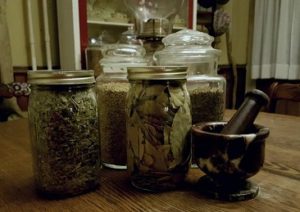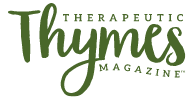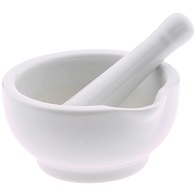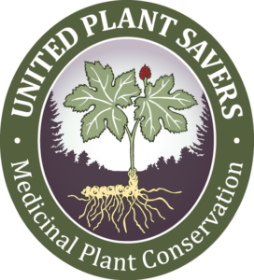By Pamela Ruane, Assistant Professor
Our first taste of the sweetness of spring is near! We are just starting to come out of the darkness of winter in the northern climates and many of us are suffering from “cabin fever.” Now, the burgeoning need to feel the warmth of the sun is upon us and, although the days are gradually growing longer and the nights shorter, the colder temperatures and weather may still keep us inside. Even with a lifestyle that includes outdoor activities in the winter, it is easy to succumb to the doldrums. Even the cheeriest of people may find their spirits dampened. Those who suffer from depression might find that it is worsened and those afflicted with Seasonal Affective Disorder know this feeling all too well.
The good news is that there are some things you can do to prevent yourself from marching to the beat of the blues.
First and foremost – Get up, get outside, and move your body. Try to get outdoors as much as possible. Even though the winter sun may seem weak, your body recognizes its positive effects and movement is uplifting and energizing! Regular exercise is one of the most effective and inexpensive ways to improve mood. Exercise, particularly aerobic exercise, releases serotonin and dopamine which are mood-elevating chemicals in the brain. It can also decrease stress hormones.
Second –Avoid caffeine and alcohol and try to avoid the urge to load up on carbohydrates. In the cold winter months, we have a primitively rooted tendency to try to consume extra calories and we might even find ourselves craving foods that are less than healthy. In ages past, the extra calories would have helped to provide warmth but it isn’t necessary in modern times when food is easily accessible. All those extra carbs can really pack on the pounds and the cravings for carbohydrates can turn into a vicious cycle because the carbs trigger chemicals in our brains that make us feel good for a little while after we eat them. Once we start to come down off that “high,” we crave more. Then we gain weight and might find ourselves even more depressed.
 Third – If exercise and a healthy diet aren’t quite cutting it, there are some natural supplements you can try.
Third – If exercise and a healthy diet aren’t quite cutting it, there are some natural supplements you can try.
John’s Wort (Hypericum perforatum)
This herb works like many common pharmaceutical antidepressants and can help to alleviate mild to moderate depression. Also, much like pharmaceuticals, it can take 4 to 6 weeks to be fully effective. It does have some side effects which may include dizziness, dry mouth, indigestion, fatigue, and light sensitivity. This herb is metabolized in the body in much the same way as many prescription antidepressants so you should not take it if you are already taking one. It has the potential to interact with other medications, so you should be sure to partner with your healthcare provider if you take any other meds regularly. It is not recommended for pregnant or nursing women, children, or people with bipolar disorder, liver or kidney disease.
Omega-3 Fatty Acids
Studies have linked depression with low dietary intake of omega-3 fatty acids and have also found that countries with higher fish consumption, such as Japan, have a lower rate of depression. Preliminary studies suggest that omega-3s (DHA and EPA) together with antidepressants may be more effective than antidepressants alone.
SAM-e (S-adenosyl-L-methionine)
This is a compound found naturally in the human body that may increase levels of neurotransmitters serotonin and dopamine, the body’s “feel good” chemicals. Several studies have found that using a SAM-e supplement is more effective than placebo for depression.
Folic Acid
Preliminary research suggests that people with depression who also have low folate levels may not respond as well to antidepressants. Supplementation might be useful for folks whose antidepressant medication’s effectiveness seems to have petered out.
Vitamin B6
Vitamin B6 is essential for the body’s production of those “feel good” neurotransmitters, serotonin and dopamine, that I mentioned above. Although deficiency of vitamin B6 is rare, people taking birth control pills or hormone replacement therapy may be at greater risk for a deficiency.
Magnesium
Like vitamin B6, magnesium is needed for serotonin production. Good sources of magnesium include legumes, nuts, whole grains and green vegetables.
Light Therapy
As I mentioned earlier, ensuring you get enough exposure to sunlight is helpful and may be effective for seasonal mood changes that occur in the darker winter months. Exposure to light in the morning (e.g. by taking a walk outside) may help the body’s sleep/wake cycle function properly. Production of serotonin is turned on in the morning upon exposure to light. During the winter when there is less sunlight, serotonin levels can drop, making us feel tired and prone to seasonal affective disorder. If that is not possible or does not seem to be working for you, another option is bright light therapy (3,000 to 10,000 lux). There are different types of lights available, from light boxes to visors. that are typically used for 20-30 minutes a day and may even be covered by insurance.
Of course, these suggestions are not a substitute for seeing your medical provider and you should be sure to discuss any symptoms you have, along with any supplements you may be taking or plan to take, with them.
A good, healthy diet and exercise are the basis for good health and happiness but depression can rear its ugly head in anyone’s life. There’s no shame in admitting that you need a little help in kicking it to the curb.
Now, I have a “feel good” recipe for you to try. Sometimes just the very act of pampering yourself can lift your spirits and help to change your tune. Use the essential oil of your choice to make this wonderful silky, scented body lotion and, until next time, be well, my friends!
Ingredients:
½ ounce of beeswax
1 teaspoon of lanolin
1 teaspoon of vitamin E oil
1/3 cup of coconut oil
1 cup of aloe vera gel
¾ cup of sesame or sunflower oil
10 drops of your choice of essential oil
Directions:
Place aloe vera gel, lanolin, and vitamin E in a blender or food processor. Blend briefly and set aside.
Put coconut oil and beeswax in a bowl and microwave on high for 30 seconds. Watch carefully! Repeat in 10 second increments until fully melted. Stir in sesame or sunflower oil, reheating if needed.
Gradually add a small amount of the coconut oil and beeswax mixture into the blender or food processor and blend until all of the oil is mixed in. Once you have achieved a mixture that is the consistency of mayonnaise, stop blending and add essential oil. Pulse blend until it is mixed in being careful not to over blend.
Spoon cream into glass jars while still warm. It will quickly thicken.
Apply liberally to skin (not for ingestion).
Enjoy!
About Pamela … Pamela Ruane is an Assistant Professor for Lock Haven University of Pennsylvania’s Graduate Physician Assistant Program. She lives in rural Potter County, PA with her husband, their sons, and a passel of finned, feathered, and furred family members. She has earned a M.S. in Health Science, Physician Assistant Studies as well as a Ph.D. in Natural Health and Naturopathy with a focus in herbal medicine.
Pam is an Usui Reiki Master Therapist and also works part-time as a Hospitalist on the post-acute care floor of a rural critical access hospital. In the past, she has worked with clients as a naturopath and herbalist in Ellicott City, MD and has spent time as a clinician in pediatrics and family medicine in the suburbs of Washington, DC as well as South New Jersey. In her spare time, she enjoys teaching adults and children about native herbs and loves to grow medicinal herbs and wild craft sustainable native species. She writes our Mortar & Pestle column.
Editor’s Note:
This article appeared in the Spring 2017 Issue of Therapeutic Thymes Magazine. To read all of Pamela’s articles, as well as all of our great authors, be sure to subscribe today!


 Ingredients:
Ingredients:

